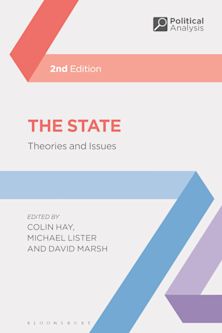- Home
- ACADEMIC
- Politics & International Relations
- International Relations - Other
- Conflict Resolution of the Boruca Hydro-Energy Project
Conflict Resolution of the Boruca Hydro-Energy Project
Renewable Energy Production in Costa Rica
Conflict Resolution of the Boruca Hydro-Energy Project
Renewable Energy Production in Costa Rica
You must sign in to add this item to your wishlist. Please sign in or create an account
Description
A case study that profiles the best practices for sustainable development, indigenous human rights, and conflict resolution, providing original insights into Latin American environmental and development politics.
Table of Contents
List of Abbreviations
CHAPTER 1 INTRODUCTION
1. The Boruca Project as Case Study
2. Stakeholders
Analysis of the Systems, Institutions and Actors of the Region
Assessment of the Attitudes and Actions of Primary Actors
General Observations
Conclusion
3. Traditional Approaches to Development: Theory and Practice
4. Rethinking Project Design using Mediation and Conflict Resolution
CHAPTER 2 ENERGY PRODUCTION AND NEEDS IN DEVELOPING COUNTRIES
1. Current Situation in Latin America
2. Analysis about the Energy Sector in Costa Rica
CHAPTER 3. ANALYSIS: HYDRO-PROJECT BORUCA, COSTA RICA
1. History of the Project
2. Legal Framework and Policies
3. Human Rights
4. Stakeholders
5. Socio-Cultural and Economic Aspects
6. Ecological and Environmental Impacts
7. Violence and Conflict Resolution
8. Conclusions about the Boruca Dam
9. Project El Diquís
CHAPTER 4. RETHINKING PROJECT DESIGN
1. Renewable Resources as a Key to Sustainable Development
2. Economic Sustainability
3. Social Sustainability
4. Overcoming Barriers to the Implementation of the Sustainable Power Projects in Costa Rica
5. Participation of Stakeholders
6. Consultation/Mediation and Conflict Resolution
7. Monitoring and Evaluation
CHAPTER 5. REGIONAL DEVELOPMENT IMPLICATIONS IN THE SOUTH OF COSTA RICA
1. Development Aspects for the Regional Indigenous Reserves in the South of Costa Rica
2. Regional Development of the Indigenous Reserves
CHAPTER 6 CONCLUSIONS ON MAIN THEMES AND ISSUES
1. Energy Needs and Production is increasing in the Region
2. Conflict Resolution of the Boruca Hydroelectricity Dam is possible
3. Alternative Energy Options are feasible in Costa Rica
4. Regional Indigenous Development Opportunities in the south of Costa Rica exist
Bibliography
Product details
| Published | 22 Dec 2011 |
|---|---|
| Format | Ebook (Epub & Mobi) |
| Edition | 1st |
| Extent | 234 |
| ISBN | 9781441133243 |
| Imprint | Continuum |
| Publisher | Bloomsbury Publishing |
About the contributors
Reviews
-
"Carls and Haffar describe the efforts to mediate between the local and national interests of the government of Costa Rica, the indigenous people, and the World Bank and other potential financing institutions, regarding construction of the hydroelectric dam in southern Costa Rica. The study was conducted as a learning tool for students in the two universities. It covers energy production and needs in developing countries, the Boruca project itself, rethinking project design, and regional development implications in the south of Costa Rica. The conflict primarily involved environmental degradation and loss of human rights, they conclude, and was resolved by listening carefully to stakeholder positions, interests, fears, and needs. They also argue that the resolution could have been earlier and easier if an adequate discussion forum had been available from the start." -Eithne O'Leyne, BOOK NEWS, Inc.

ONLINE RESOURCES
Bloomsbury Collections
This book is available on Bloomsbury Collections where your library has access.



































